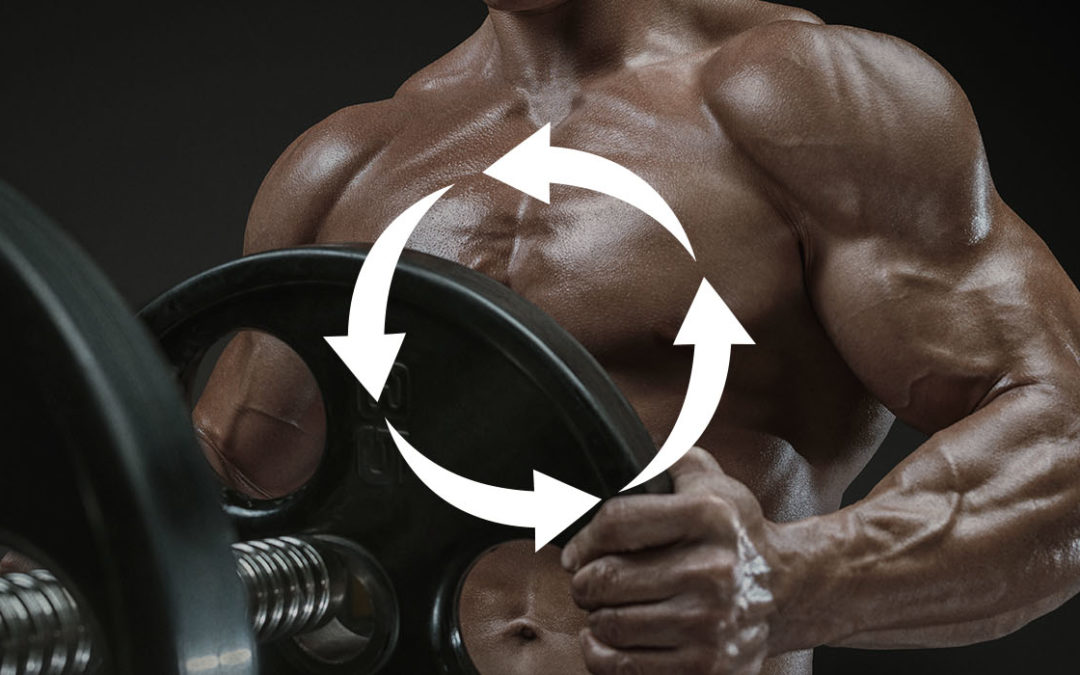Here’s a question I get often:
“Is it better to eat the same calorie level every day, or eat more on training days vs. off days or days I’m really busy?”
Short answer is, well, it depends.
I know: that answer sucks. But the good news is it depends on YOU, and mainly what you like doing.
Whether you gain or lose weight is determined by your calorie intake over a 24 hour period, i.e., if you’re in a net caloric surplus or deficit.
The time of day you eat or whether it’s a bunch of mini-meals and snacks or one or two big meals doesn’t matter from a weight loss/weight gain perspective. So do what works best for you.
But it gets even better: the aforementioned “24-hour period” isn’t accurate. The fact is, whether you gain or lose weight is determined by your net calorie balance for the week.
So if you mess up on Tuesday and overeat by 500-calories, there’s no need to say, “Aww, screw it!” and bail on the plan ’til next Monday.
Simply UNDER-eat by 250 calories for a couple days and it will all come out in the wash.
(Granted, none of these numbers — from calorie counts on food labels to your estimated maintenance calories and especially calories burnt thru exercise — are that accurate, so don’t get too in the weeds. It’s the big picture concept of working with a weekly average that matters.)
Interestingly, the same principle of working off a weekly average applies to step count too. So no need to stress about exercising/moving the same amount either.
“Okay, but carb or calorie cycling?”
Now, as to the actual question of what is more effective, static calorie intake (like a standard 7 day diet) or bouncing calories (like carb cycling), I’ll say this:
If you’re trying to gain or build muscle, it doesn’t matter. You need to be in a (modest) net calorie surplus for the week. Period. So just do what works for you.
(Though I would make sure you eat at least four servings of protein every day, evenly spaced. And if you are gaining, a lot of carbs along with that protein is ideal.)
If fat loss is your goal, keep in mind that there is evidence cycling caloric intake (so a deficit for three days, maintenance calories for one day) actually is better than an equivalent static 7-day calorie deficit, in that varying intake may help prevent the body from “getting used” to the net calorie intake and down-regulating the metabolism.
It also allows the dieter to eat more, especially carbs, on exercise days to aid recovery. Or simply to eat more on days they tend to be hungrier and less on days they’re less hungry (or too busy to eat).
It also makes people feel more engaged and cutting edge, which can help with adherence and make you feel like you are doing something. Cool.
HOWEVER, HERE’S THE CATCH: CONSISTENCY TRUMPS EVERYTHING.
So, even if the idea of eating more or less on certain days has merit, it is NOT a good choice if
- you find it complicated or overwhelming to shop or plan;
- it increases prep time;
- it makes you think about your diet all the time;
- you keep missing meals because you can’t get into rhythm.
In those instances, just keeping it simple is ALWAYS best.
I typically start with a basic 7-day diet as it’s easier to establish consistency and make the key initial adjustments in lifestyle that help with establishing rhythm.
Once (or if) it “stops working” or lifestyle suggests cycling would be better, then I maybe make a change.
“What about cycling via weekly cheat meals?”
Does a 7-day diet that includes a big weekly cheat meal help “keep the metabolism humming” in a diet?
Short answer is NO. But it can help with adherence and give you something to look forward to (along with a nice carb load), which can help with workout performance. That can help your rhythms. But there’s no beneficial effect on the metabolism.
As for tracking a big cheat meal, eh, don’t bother. A lot of the calories are burnt off as heat anyway. Plus that’s just as neurotic as hell.
Simply fudge your numbers so at the end of the day your daily intake matches your assigned target.
– Bryan

